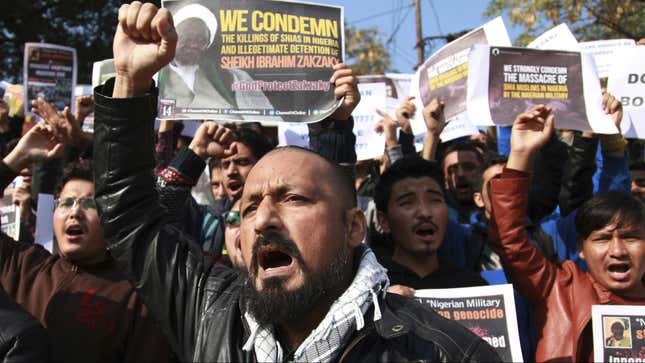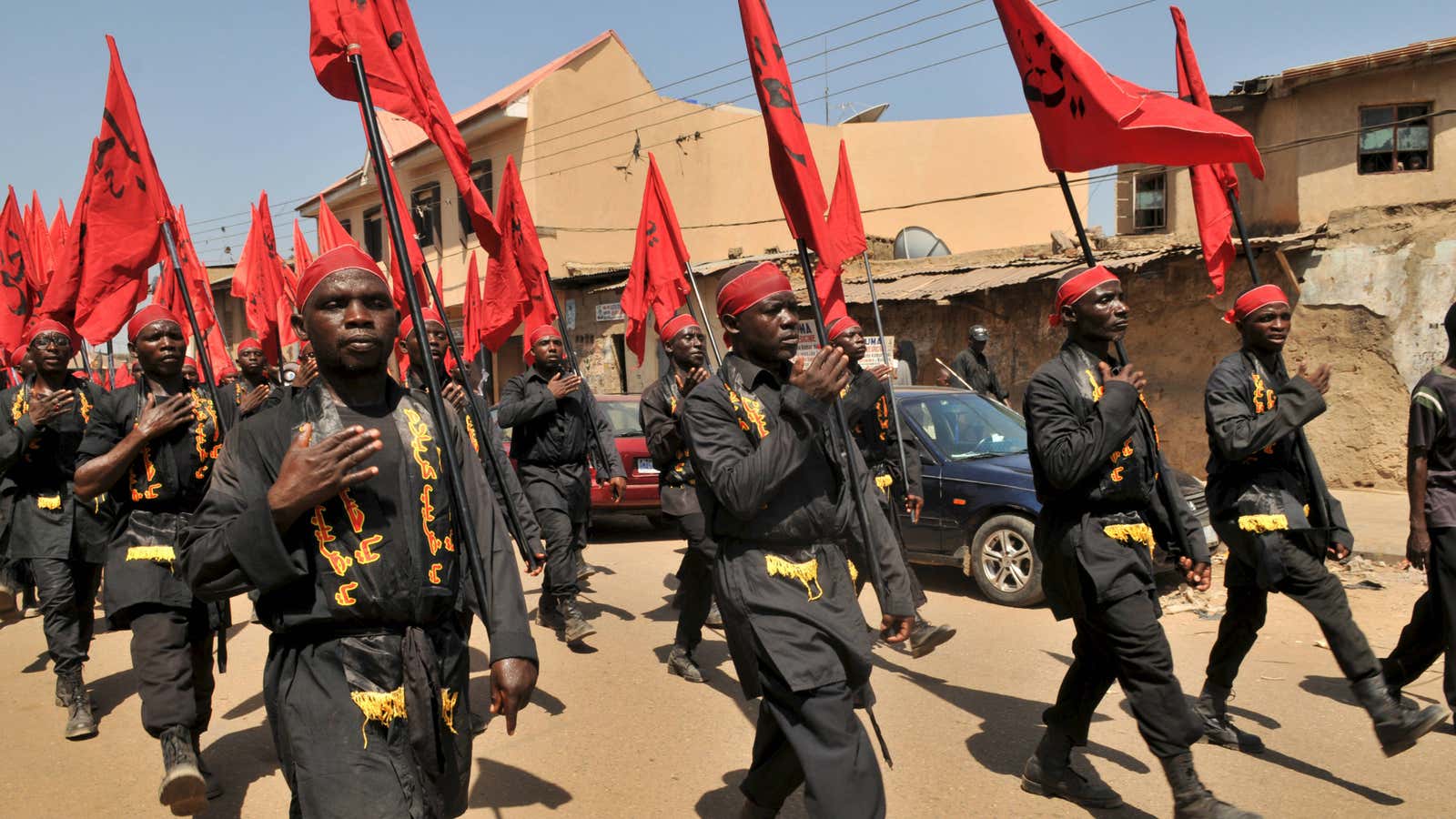Tensions and security concerns have been raised in Nigeria following a clash between the country’s military and Islamic Movement of Nigeria, a Shiite group. Hostilities were apparently triggered by an incident involving the army chief in Zaria, a university town in the country’s north.
According to the official accounts of the military, members of the Shiite group blocked the route of the army chief’s motorcade thus prompting a confrontation. The army claims that the group attacked with ‘crude weapons’ and fearing that the life of the army chief may have been in danger, lethal force was used to clear a route of escape for the army chief. But that was not the height of the violence as the military claims that in a bid to maintain peace, soldiers went to known Shiite bases in the city where it claimed the members of group were ‘mobilizing and attacking security forces’. The army reported the incident as an attempt to assassinate the army chief.
However, accounts by members of the Shia group paint a different picture. They claim they were attacked by the Nigerian army who killed hundreds in what has been called a massacre. The army says the group’s main base was destroyed by the military while the leader of the group, Ibrahim El-Zakzaky, is in custody of the military. While the military claims El-Zakzaky is safe, pictures have emerged showing the leader bloodied and with visible evidence of bodily harm. It is not the first time the army has clashed with the Shiite group as three sons of the group’s leader were killed by soldiers in bloody protests last year.
While there are inconsistencies in the various accounts the issue of excessive force and human rights abuses by the army raises its head again.
Drawing parallels
The clash in Zaria is also a stark reminder of similar events that triggered the rapid evolution of the Boko Haram insurgency which has left thousands dead and millions more displaced. In 2009, the erstwhile leader of the Boko Haram sect, Mohammed Yusuf, died in police custody sparking violence in the northern region and eventually led to a bloody insurgency after the emergence of Abubakar Shekau as leader of the sect. In the last six years, the war on Boko Haram has devastated the economy in Nigeria’s north-east and following the events of the last few days, there are now fears that the killings could fuel another avoidable insurgency.
Sharing similar sentiments, the Nigerian Supreme Council for Islamic Affairs released a stinging statement urging the government not repeat mistakes of the past.
Nigeria is yet to officially comment on the killings and that inaction has drawn criticism. The strongest response so far has come from pro-Shia Iran where protests have been held outside the Nigerian embassy in Tehran and there have also been protests in Muslim students in India. Iran has also explored diplomatic channels to make strong protests against the attack.

